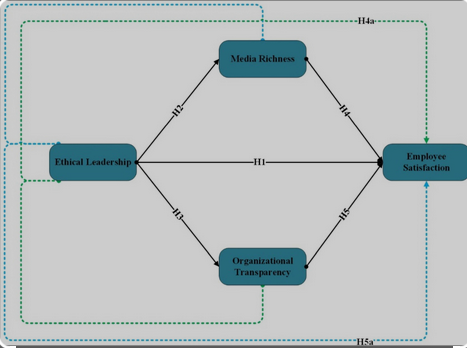Ethics in the workplace has a profound impact on employee engagement and motivation. When employees perceive that an organization operates with a strong ethical foundation, it can positively influence their commitment, job satisfaction, and overall well-being. The purpose of this study is to place importance on the impact of ethics on employee engagement and motivation:

Trust and Credibility:
Ethical behavior builds trust and credibility within the organization. When employees trust that their leaders and colleagues operate with integrity, they are more likely to feel secure, supported, and engaged in their work.
Positive Work Culture:
An ethical work culture promotes a positive and inclusive environment. Employees who feel a sense of belonging and shared ethical values are more likely to be engaged, motivated, and satisfied with their workplace.
Organizational Commitment:
Ethical organizations often experience higher levels of employee commitment. Employees who identify with and support the organization’s ethical values are more likely to stay with the company, reducing turnover and contributing to long-term organizational success.
Employee Pride and Loyalty:
When employees are proud of their organization’s ethical reputation, they are more likely to be loyal and committed. Ethical behavior contributes to a positive external image, and employees who align with this positive reputation are motivated to contribute to the organization’s success.
Enhanced Job Satisfaction:
Ethical practices contribute to a positive work experience. Employees who perceive that their organization values fairness, honesty, and ethical decision-making are more likely to experience job satisfaction, leading to increased motivation to perform well in their roles.
Reduced Stress and Burnout:
Ethical organizations prioritize the well-being of their employees. When employees feel supported and believe that their organization cares about their physical and mental health, it reduces stress and burnout, contributing to higher levels of engagement.
Alignment of Personal and Organizational Values:
When employees perceive a strong alignment between their personal values and the ethical values of the organization, it fosters a sense of purpose and meaning in their work. This alignment enhances motivation and engagement.
Increased Employee Empowerment:
Ethical organizations often empower employees to make ethical decisions at various levels. This empowerment gives employees a sense of autonomy and responsibility, contributing to their motivation and engagement in their roles.
Improved Team Collaboration:
Ethical behavior encourages open communication and collaboration within teams. When employees trust their colleagues and leaders, they are more likely to collaborate effectively, leading to improved teamwork and higher levels of engagement.
Attraction and Retention of Talent:
Ethical organizations tend to attract and retain top talent. Talented individuals are often drawn to organizations with a strong ethical reputation, and once recruited, they are motivated to contribute to the success of an organization they perceive as ethical.
Innovation and Creativity:
A positive ethical climate encourages a culture of innovation and creativity. When employees feel secure in expressing their ideas without fear of retaliation, it enhances motivation and engagement, leading to a more innovative workplace.
Customer and Stakeholder Relationships:
Ethical behavior extends beyond the organization and impacts relationships with customers and stakeholders. Employees who are proud of their organization’s ethical practices are often more motivated to deliver excellent customer service and maintain positive stakeholder relationships.
Adaptability and Resilience:
Ethical organizations tend to be more adaptable and resilient in the face of challenges. Employees who feel supported by ethical leadership are motivated to navigate challenges with resilience, contributing to overall organizational success.
Continuous Learning and Development:
Ethical organizations invest in the continuous learning and development of their employees. When employees see that their organization is committed to their growth and well-being, it enhances motivation and engagement in their professional development.
Ethical Leadership Influence:
Ethical leadership plays a crucial role in influencing employee engagement and motivation. Leaders who model ethical behavior and consistently communicate the importance of ethics inspire employees to embrace similar values and behaviors.
In summary, ethics significantly impact employee engagement and motivation by creating a positive work culture, fostering trust, and aligning individual and organizational values. Organizations that prioritize ethical practices are likely to experience higher levels of employee commitment, satisfaction, and overall well-being.
